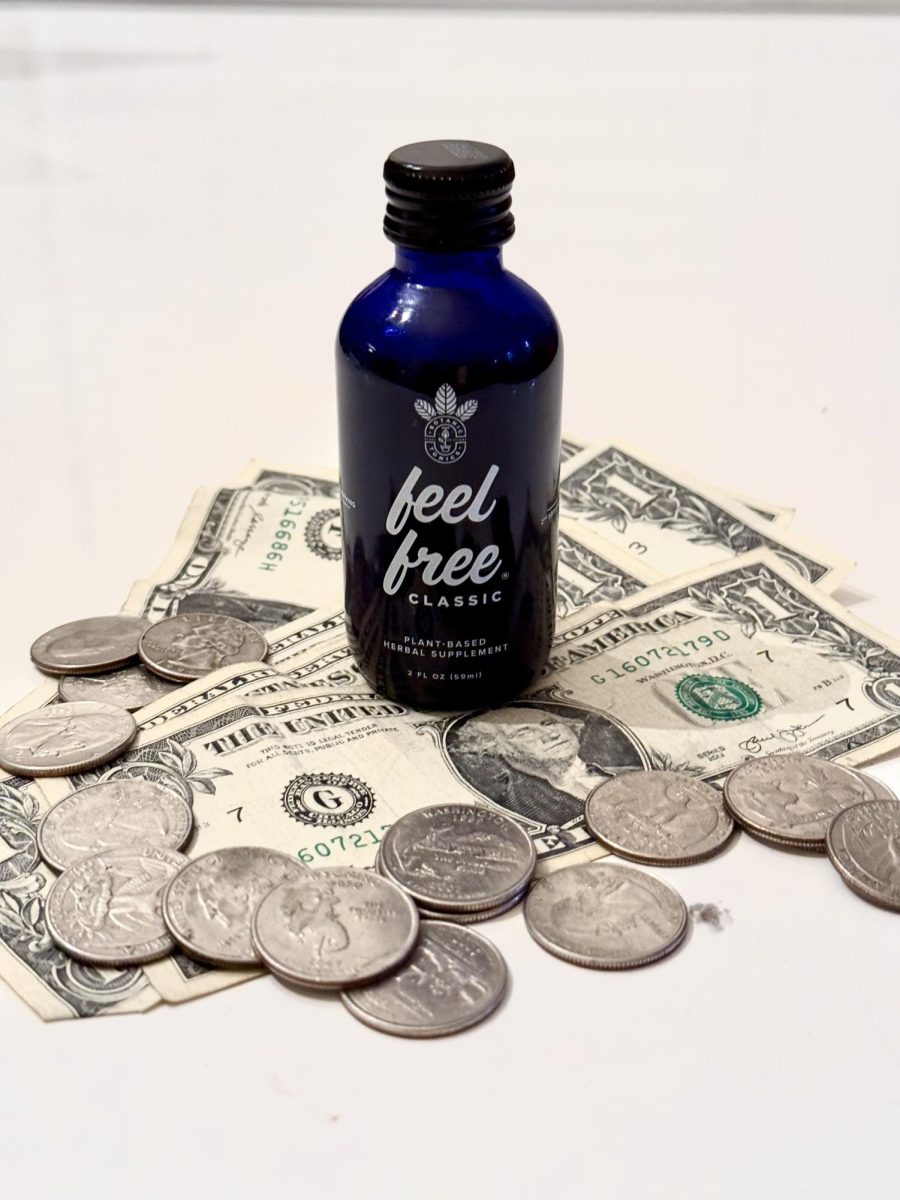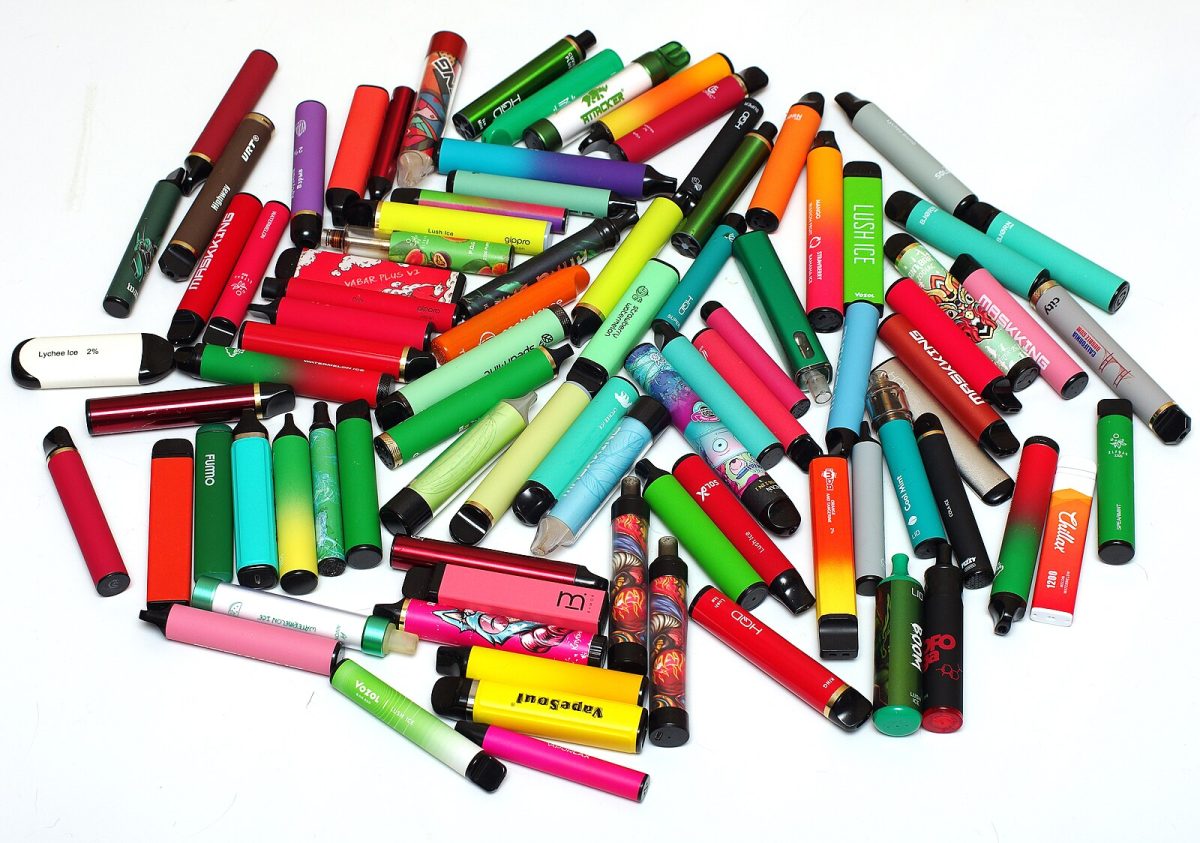A herbal supplement called “Feel Free,” sold in numerous convenience stores within walking distance of Midtown, has already been banned in six states, the District of Columbia and countless localities nationwide. Owned by beverage company Botanic Tonics, Feel Free is marketed to those seeking to improve their health through plant-based ingredients. While technically legal, the Food and Drug Administration (FDA) has repeatedly raised concerns over its core ingredients: kratom leaves and kava roots. According to the FDA and multiple press outlets, kratom’s concentrated compound, 7-hydroxymitragynine, has been referred to as “legal morphine” because of its opioid-like properties.
Researchers and drug counselors warn that Feel Free is fueling a new wave of addiction, ultimately leading to detrimental health consequences. Packaged in an attractive blue glass bottle, Feel Free’s alluring name highlights the feeling that users are finding so addictive, according to drug counselors. In many areas, rehab centers across the country are reporting an uptick in cases of people addicted to the feel-good effects of Feel Free.
Despite these concerns, Georgia lawmakers only recently passed legislation to regulate kratom sales, one of the key ingredients in Feel Free. The law prohibits sales to anyone under 21, requires kratom products to be housed behind store counters, mandates detailed labeling, and limits the concentration of active chemicals. While these measures show progress, they fall far too short of a full ban and fail to address the unique dangers of Feel Free, a product that directly targets young consumers.
This leaves Georgia trailing other parts of the country where kratom has been banned altogether. One reason for this inadequate response is the influence of kratom industry lobbyists, particularly the American Kratom Association (AKA), who actively fight against bans. Their efforts have been highly influential in shaping the legislation that keeps kratom (and products like Feel Free) legal, regardless of health warnings.
Feel Free is driving a rapidly spreading addiction crisis, its most notable victims being teenagers. Social media influencer Michael Brown said that, while at a gas station, a boy he described as no older than 14 asked him to buy Feel Free. When Brown refused, the boy reportedly tried to steal his wallet and purchase it himself.
In another incident, influencer Jasmine Adeoye reported being so hooked on Feel Free, that she was consuming 12 bottles a day, which is the equivalent of 24 doses and 12 times more than the recommended amount of two doses per day. She found Feel Free through a wellness podcast, and initially believed it was healthy.
Even though you have to be 21 to purchase it in Georgia, like alcohol and nicotine, Feel Free often finds its way into the hands of children. At a nearby gas station, a single bottle costs just $8.99. A quick Google search of Midtown’s address reveals just how easy it is to find Feel Free; 25 stores in the immediate area carry it. This potentially addictive, undoubtedly dangerous, and readily available health supplement is spreading into our school districts and our communities, and the Georgia legislature is not doing enough to prevent it.
According to Nature Scientific Reports, kratom contains alkaloids, specifically mitragynine and 7-hydroxymitragynine, that attach themselves to the mu-opioid receptors in the brain. It is important to note that these are the same receptors targeted by prescription opioids, which, per the National Institute on Drug Abuse (NIDA), can lead to dependence and withdrawal, which closely mirror the side effects of traditional opioid addiction. Kava also serves as a nervous system depressant, slowing down reactions and providing muscle relaxing effects. This might be fine on its own, but when mixed with a high dosage of kratom, a stimulant, it makes Feel Free easier to overuse and harder to quit.
According to the National Institutes of Health, botanical products, such as kratom, lack federal oversight, meaning it is easier for dosages and potency to vary due to manufacturing differences. Users attempting to detox from Feel Free reported withdrawal symptoms so intense that clinicians treat them similarly to heroin and benzodiazepine dependence.
Long-term, high-dose usage of kava can be detrimental to liver health and can even lead to death in some cases, according to UCLA Health. Side effects of kratom include weight loss, dry mouth, vomiting, constipation, muscle pain and high blood pressure. Kratom also affects the mind and nervous system, causing dizziness, drowsiness, hallucinations, depression, trouble breathing, tremors and seizures.
The presence of both kratom and kava in an over-the-counter bottle is not just a minor health concern, it is a public safety disaster already in motion. While legislators in neighboring Alabama have taken steps to protect their citizens, Georgia lawmakers appear to have learned very little from the opioid epidemic that kills young people every day. Until the Georgia legislature treats this “supplement” with the seriousness it deserves, they are gambling with the lives of those they were elected to protect.














